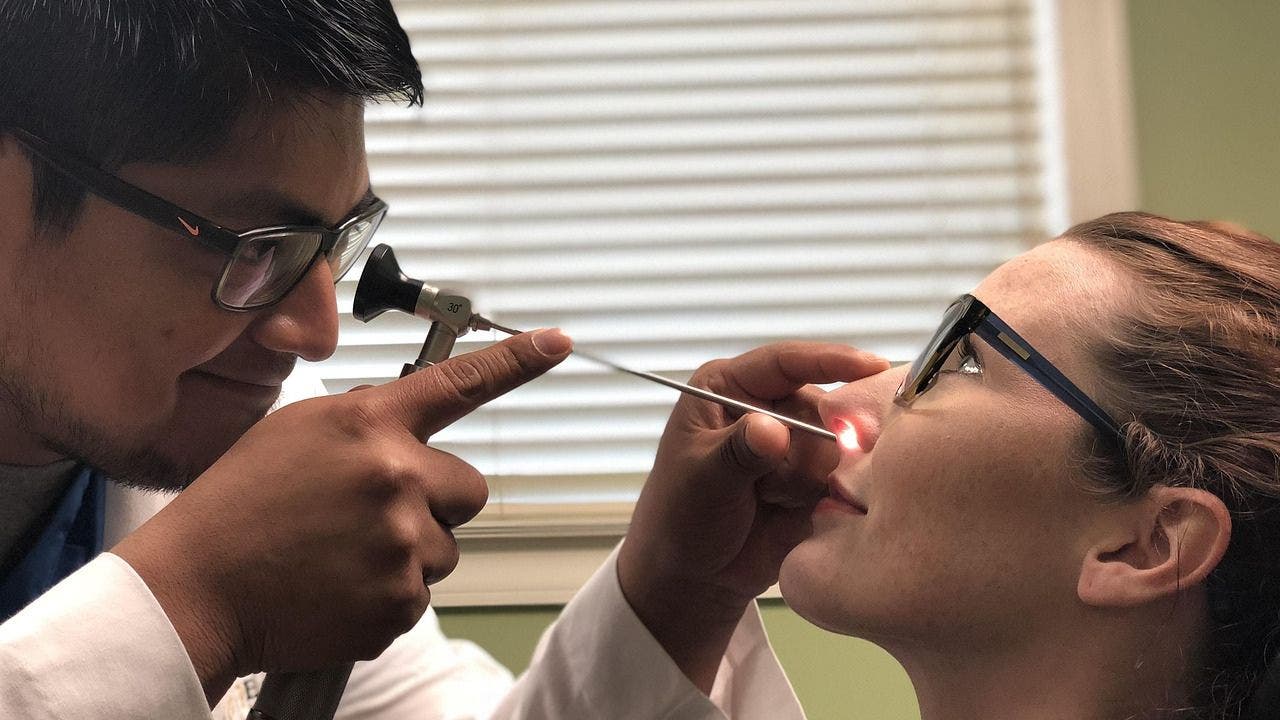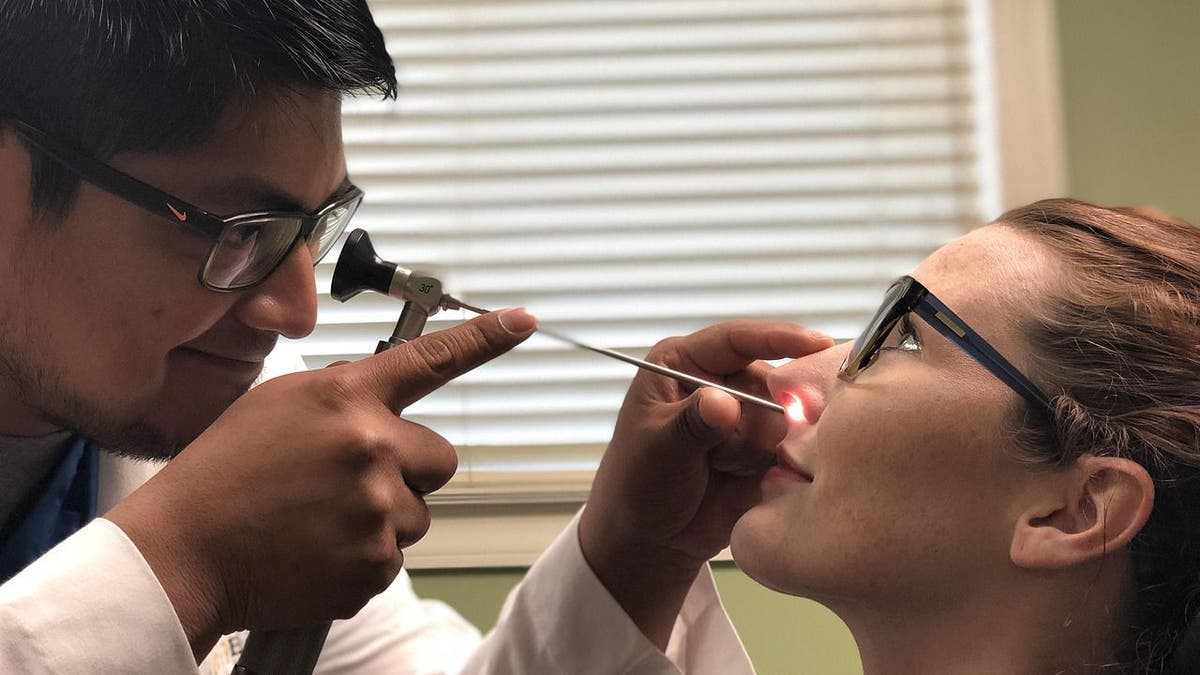Technology
World's largest stolen password database uploaded to criminal forum

Change your passwords often
When you don’t have a thoughtful, strong password picked out, a clever hacker could easily compromise your privacy and security, creating devastating losses and enormously painful hassles in your life.
Security researchers have discovered what appears to be the largest password leak of all time, containing around 10 billion unique, plain text passwords. The file, titled “rockyou2024.txt,” was posted on a leading hacking forum by a hacker using the name “ObamaCare.”
The passwords didn’t leak in a single data breach; they are part of both old and new data breaches. This is bad news for everyone because hackers can use these passwords to access not only your personal data but also your financial information, especially if you use the same password for multiple services.
GET SECURITY ALERTS, EXPERT TIPS – SIGN UP FOR KURT’S NEWSLETTER – THE CYBERGUY REPORT HERE
People working on laptops (Kurt “CyberGuy” Knutsson)
What you need to know about RockYou2024 leak
The massive trove of passwords was discovered by researchers at Cybernews, who believe the leak poses severe dangers to users prone to reusing passwords. The report revealed that the password file, which was posted on BreachForums criminal underground forum, contained an astonishing 9,948,575,739 unique passwords, all in plain text format.
According to Cybernews, RockYou2024 isn’t an entirely new leak. It apparently comprises an earlier credentials database known as RockYou2021, which featured 8.4 billion passwords. The hackers scoured the internet for data leaks, adding another 1.5 billion passwords from 2021 through 2024, increasing the dataset by 15%.
“In its essence, the RockYou2024 leak is a compilation of real-world passwords used by individuals all over the world. Revealing that many passwords for threat actors substantially heightens the risk of credential stuffing attacks,” researchers said, noting that they cross-referenced the passwords included in the RockYou2024 leak with data from Cybernews’ Leaked Password Checker.
ObamaCare, the forum member who posted the password file, registered on the forum in May this year but has already leaked multiple other databases. For instance, they have previously shared an employee database from the law firm Simmons & Simmons, a lead from the online casino AskGamblers, and student applications for Rowan College at Burlington County.

Post announcing the leak on a hacker forum (Cybernews) (Kurt “CyberGuy” Knutsson)
ANDROID BANKING TROJAN MASQUERADES AS GOOGLE PLAY TO STEAL YOUR DATA
How does this leak affect you?
The password leak puts you at risk of credential stuffing attacks, which can be very damaging. Credential stuffing is when someone takes passwords from one data breach and tries to use them to log into other services.
For example, a hacker might use passwords from an AT&T breach or a previous breach with 26 billion records to see if you use the same password for your bank account.
“Threat actors could exploit the RockYou2024 password compilation to conduct brute-force attacks and gain unauthorized access to various online accounts used by individuals who employ passwords included in the dataset,” the researchers explained.

A woman working on her computer (Kurt “CyberGuy” Knutsson)
MASSIVE DATA BREACH EXPOSES OVER 3 MILLION AMERICANS’ PERSONAL INFORMATION TO CYBERCRIMINALS
How can I check if my information was sold on the dark web?
To check if your information was sold on the dark web, you can go to haveibeenpwned.com and enter your email address into the search bar. The website will search to see what data of yours is out there and display if there were data breaches associated with your email address on various sites. You may have even received an email from the website already saying that some of your data was stolen, and you should look into this immediately if that is the case.
What do I do if my data has been stolen, and how do I protect myself?
If you think you may have been affected by the massive password leak, follow these tips to safeguard yourself.
1) Change your passwords: Never use the same password for multiple services you use. If you recall adding the same password on different apps or websites, consider changing it to something different. Consider using a password manager– to generate and store complex passwords.
2) Set up two-factor authentication (2FA): 2FA is an extra shield that prevents hackers from accessing your accounts. It requires that after entering your password, you add another piece of information. This could be a code sent to your phone via SMS, a code generated by an authenticator app, a fingerprint scan or a hardware token.
3) Remove your personal information from the internet: Although no service can promise total removal of your data from the internet, using a removal service is a smart step. These services can help you monitor and systematically erase your personal information from hundreds of websites, offering you greater privacy and peace of mind. Preventing a scammer from being able to cross-reference your data from a breach from data they may find of yours on the dark web is a smart step to prevent scammers from targeting you. Remove your personal data from the internet with my top picks here.
4) Use a VPN: Consider using a VPN to protect your online activity and data. VPNs will protect you from those who want to track and identify your potential location and the websites that you visit. See my expert review of the best VPNs for browsing the web privately on your Windows, Mac, Android and iOS devices.
5) Monitor your accounts: Regularly review your bank statements, credit card statements and other financial accounts for any unauthorized activity. If you notice any suspicious transactions, report them immediately to your bank or credit card company. See my tips and best picks on how to protect yourself from identity theft.
Kurt’s key takeaway
The RockYou2024 leak is a wake-up call for everyone who uses the internet. It shows that even the data you entrust to companies might not be completely safe. While we can take steps to protect ourselves, the real responsibility lies with the apps and services we rely on. They need to step up their security game to prevent these huge data breaches from happening in the first place.
What measures do you believe companies should take to protect user data and prevent breaches like the RockYou2024 leak? Let us know by writing us at Cyberguy.com/Contact.
For more of my tech tips and security alerts, subscribe to my free CyberGuy Report Newsletter by heading to Cyberguy.com/Newsletter.
Ask Kurt a question or let us know what stories you’d like us to cover.
Follow Kurt on his social channels:
Answers to the most asked CyberGuy questions:
Copyright 2024 CyberGuy.com. All rights reserved.

Technology
Apple’s latest AirPods are already on sale for $99 before Prime Day

Amazon Prime Day kicks off tomorrow, July 8th, but you don’t have to wait until then to pick up Apple’s latest pair of AirPods at a discount. Right now, the AirPods 4 are available for around $99 ($30 off) at Amazon, Best Buy, and Walmart, while the AirPods 4 with noise cancellation are going for around $149 ($30 off) at Amazon, Best Buy, and Walmart. That’s within $10 of the lowest price we’ve seen on the ANC model and matches the lowest price to date on the base pair.
Both versions of Apple’s current-gen earbuds feature shorter stems and larger buds than previous models, allowing them to accommodate a broader range of ear shapes. The open-style earbuds use a hard plastic body that doesn’t create a tight seal inside your ear, which means they sacrifice some bass response compared to gummy-tipped earbuds. Hardshell earbuds won’t create pressure in your ear, though, which can feel uncomfortable after listening to music for a few hours.
Overall, the fourth-gen AirPods sound better than previous models due to a custom amplifier and new acoustic architecture. Audio quality is somewhat subjective and largely depends on how the music was recorded, mixed, and mastered; however, former Verge staffer Chris Welch noted in his review that he was pleased with the sound of Apple’s latest pair of wireless earbuds. If you’re upgrading from an older pair, you’ll notice a difference.
The AirPods 4 run on Apple’s H2 chip, which is required for Voice Isolation, a feature that reduces background noise and amplifies the volume of your voice during calls. If you’re using an iPhone, you can say “Hey Siri” to evoke Apple’s smart assistant to place calls, hear and return messages, and play music. You can also locate the earbuds using the Find My app on Apple devices if they’re misplaced.
The entry-level model can last up to five hours on a single charge and can be fully charged five times using the included USB-C charging case (the ANC model also offers wireless charging). Both pairs of earbuds are also IP54-rated for dust, sweat, and water resistance, ensuring you can wear them safely during workouts. Needless to say, the AirPods 4 are excellent earbuds at their current price, whether you opt for the model with active noise cancellation or not.
Three more deals worth your time
Technology
How micro-robots may soon treat your sinus infections

NEWYou can now listen to Fox News articles!
A breakthrough in medical technology could soon change how sinus infections are treated. Scientists have created micro-robots for sinus infection treatment that can enter the nasal cavity, eliminate bacteria directly at the source, and exit without harming surrounding tissue. This drug-free, targeted approach may reduce our dependence on antibiotics.
Sign up for my FREE CyberGuy Report
Get my best tech tips, urgent security alerts, and exclusive deals delivered straight to your inbox. Plus, you’ll get instant access to my Ultimate Scam Survival Guide – free when you join my CYBERGUY.COM/NEWSLETTER.
A woman with a sinus infection. (Kurt “CyberGuy” Knutsson)
What are micro-robots for sinus infection treatment?
These microscopic robots are smaller than a speck of dust. They are made of magnetic particles enhanced with copper atoms. Doctors insert them through a narrow duct in the nostril. Once inside, the micro-robots are guided by magnetic fields to reach the infected area.
At that point, a fiber optic light heats the particles and triggers a chemical reaction. This reaction breaks through thick mucus and destroys harmful bacteria at the infection site. As a result, treatment becomes faster, more precise, and far less invasive.
This latest advancement comes from a collaboration of researchers at the Chinese University of Hong Kong, along with universities in Guangxi, Shenzhen, Jiangsu, Yangzhou, and Macau. Their work, published in “Science Robotics,” has helped move micro-robotic medical technology closer to real-world applications.
Why use micro-robots instead of antibiotics?
Traditional antibiotics circulate throughout the entire body. In contrast, micro-robots target only the infected area. This reduces side effects and lowers the risk of antibiotic resistance. Furthermore, patients may recover faster because the treatment goes straight to the source.

A woman with a sinus infection. (Kurt “CyberGuy” Knutsson)
Are micro-robots safe?
So far, animal trials have shown promising results. Micro-robots successfully cleared infections in pig sinuses and live rabbits, without causing tissue damage. However, scientists still need to ensure that every robot exits the body after treatment. Leftover particles could pose long-term risks.
In addition, public acceptance remains a challenge. The idea of tiny machines inside the body makes some people uncomfortable. Nevertheless, experts believe those fears will fade over time.
What other uses are possible?
Researchers are already exploring how micro-robots could treat infections in the bladder, stomach, intestines, and bloodstream. Several teams around the world are working to make the technology more advanced and adaptable for deep internal use. If successful, these innovations could revolutionize the way we fight bacteria in the human body.

A doctor examining a woman with a sinus infection. (Kurt “CyberGuy” Knutsson)
Kurt’s key takeaways
The rise of micro-robots for sinus infection treatment marks a major shift in medical care. By offering precise, non-invasive therapy without antibiotics, this method could redefine how infections are treated. With continued research and testing, these tiny tools may soon become powerful allies in modern medicine.
Would you let microscopic robots crawl through your sinuses if it meant never needing antibiotics again? Let us know by writing to us at Cyberguy.com/Contact.
Sign up for my FREE CyberGuy Report
Get my best tech tips, urgent security alerts, and exclusive deals delivered straight to your inbox. Plus, you’ll get instant access to my Ultimate Scam Survival Guide – free when you join my CYBERGUY.COM/NEWSLETTER.
Copyright 2025 CyberGuy.com. All rights reserved.
Technology
Cyberpunk Edgerunners 2 will be even sadder and bloodier

The new season will be directed by Kai Ikarashi, who also directed episode six in the first season, “Girl on Fire.” There’s no word yet on when Cyberpunk: Edgerunners 2 will premiere, but they did show off this new poster artwork. A trailer will be shown later tonight during a panel at 8:30PM PT for the animation studio, Trigger.
Showrunner and writer Bartosz Sztybor said during Friday’s panel that for season one, “I just wanted to make the whole world sad… when people are sad, I’m a bit happy,” and that this new 10-episode season will be “…of course, sadder, but it will be also darker, more bloody, and more raw.”
A brief summary of the follow-up series tells fans what to expect following the end of David’s story in season one:
Cyberpunk: Edgerunners 2 presents a new standalone 10-episode story from the world of Cyberpunk 2077— a raw chronicle of redemption and revenge. In a city that thrives in the spotlight of violence, one question remains: when the world is blinded by spectacle, what extremes do you have to go to make your story matter?
-

 News1 week ago
News1 week agoHow Every Senator Voted on the Iran War Powers Resolution
-

 Politics1 week ago
Politics1 week agoTrump's 'big, beautiful bill' faces Republican family feud as Senate reveals its final text
-

 Technology1 week ago
Technology1 week agoFacebook is starting to feed its Meta AI with private, unpublished photos
-

 Health1 week ago
Health1 week agoWhy Mariah Carey Doesn’t Use a Scale After Her 70-Lb Weight Loss
-
World1 week ago
Tech industry group sues Arkansas over new social media laws
-

 News1 week ago
News1 week agoWhat is birthright citizenship and what happens after the Supreme Court ruling?
-

 Science1 week ago
Science1 week agoAfter U.S. and Israeli Strikes, Could Iran Make a Nuclear Bomb?
-

 Business1 week ago
Business1 week agoCalifornia lawmakers approve expanded $750-million film tax credit program















